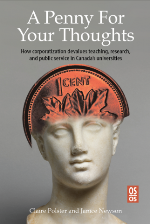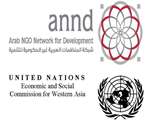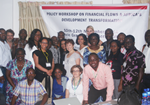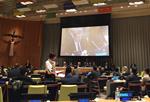Social Watch news
Published on Thu, 2015-05-28 09:27
As UN negotiations on the post 2015 framework begin to tackle the complex issues of accountability, review and follow up, the diversity of views, perspectives and the lack of concrete proposals make the likelihood of finding an agreement remote indeed.
|
Published on Thu, 2015-05-28 09:21
Ever since the Group of 20 decided to tackle infrastructure as part of its development agenda, in 2010, the push for increasing investment in infrastructure never ceased. Today, infrastructure finance is not only top of the agenda at the Group of 20 – where its sheer continuity would be already remarkable –, but also at public lending institutions, led by the World Bank, and at the United Nations where it is expected to feature prominently in a new financing for development deal for the post-2015 era.
Within the new infrastructure finance agenda emerging in such forums, the USD 85 that institutional investors, and in particular pension funds, are estimated to hold in savings, are seen as playing a starring role.
|
Published on Fri, 2015-05-22 10:53
Simmering conflicts in higher education have reached the boiling point across Canada and around the globe. Teach-ins, occupations, strikes, and mass protests are being mobilized against exorbitant tuition fees, declining educational quality, mismanagement, the commodification of research, and the suppression of free speech and critical inquiry. A Penny For Your Thoughts, a new book from CCPA's Education Project, shows how Canadian higher education has come to this point.
Through 17 real time studies, it tracks how the deteriorating condition of postsecondary education is rooted in corporatization, the process through which universities and colleges increasingly work for, with, and as businesses. The book’s central message is that the current state of Canadian universities is neither natural nor inevitable: it is the outcome of choices, policies, and actions that can be unmade and undone. Authors Claire Polster and Janice Newson do not prescribe easy recipes for achieving this. Instead, they help citizens to arrive at their own understandings of corporatization and to identify where and how they can intervene strategically in their local universities and communities to reverse its effects. By so doing, Canadians can reclaim their universities as public-serving institutions that realize their highest aspirations and meet their own, their fellow citizens’, and the global community’s most pressing needs.
|
Published on Thu, 2015-05-21 13:46
It is often argued that social protection is not affordable or that government expenditure cuts are inevitable during adjustment periods. But there are alternatives, even in the poorest countries. A recent ILO paper “Fiscal Space for Social Protection: Options to Expand Social Investments in 187 Countries” offers an array of options that can be explored to expand fiscal space and generate resources for social investments.
|
Published on Fri, 2015-05-15 08:18
As negotiations on the draft outcome of the Financing for Development Conference resume at the United Nations in New York, the European Commission launches its 2015 European Report on Development titled Combining finance and policies to implement a transformative post-2015 development agenda to contribute to the debate .
The European Commission sends a strong message in its 377 page-long report: the Sustainable Development Goals will require substantial additional finance (well beyond ODA), but any additional financing should be coupled with reformed policy frameworks at the local, national and global level to bring about the expected results.
|
Published on Tue, 2015-05-12 00:00
 |
From 13th to 16th July Heads of State and Government, and Ministers of Finance, Foreign Affairs and Development Cooperation will gather for the third International Conference on Financing for Development (FfD3), taking place in Addis Ababa, to adopt an inter-governmentally negotiated and agreed upon outcome. Whether it succeeds or fails in setting the right path towards establishing the just and healthy economies needed to make the Sustainable Development Goals possible, and form the basis for a world where gender justice and environmental sustainability are possible and in which the respect, protection and fulfillment of human rights are a lived reality for all people, is highly dependent on how the structural nature of the problems at hand will get prioritized and taken up. For economic justice to be realized, the current draft outcome (released on May 7th 2015) proposed towards this high level conference needs to change to be transformative and work towards redressing the imbalances between corporate and public power, as well as inequalities resulting from ‘North – South’ relations.
|
Published on Thu, 2015-05-07 19:33
In the eve of an official regional forum on sustainable development, the Arab citizen organizations proposed alternative strategies. The NGO Network for Development (ANND), in collaboration with the Economic and Social Commission for Western Asia (ESCWA) and with the participation of the Civil Society Division in the League of Arab States, spelled out policy alternatives and submitted them to the governments. Read here the "Alternative Development Strategies for Post-2015: Exit from the Current Policy Approach".
|
Published on Thu, 2015-05-07 09:30
Contrary to the prevailing image, Africa is a net exporter of capital. The United Nations Economic estimates the net financial outflow between the years 1970 and 2008 at around 800 billion US dollars. This is much more than all the official development assistance received by the continent. And the illicit financial outflows from Africa have accelerated exponentially during the last decade.
This is the conclusion of a high level panel on illicit financial flows that was set up by the African Union. The panel was chaired by former South African president Thabo Mbeki and it was launched in January. Yao Graham, coordinator of TWN-Africa argues that the illicit financial flows are only the tip of the iceberg and a manifestation of an economic system that privileges foreign capital and corporations to the neglect of the interests of majority of Africans and domestic capital.
|
Published on Thu, 2015-05-07 08:46
On October 15, 2014, the Member States of the Committee on World Food Security (CFS), hosted at the United Nations Food and Agriculture Organization, approved the “Principles on Responsible Investment in Agriculture and Food Systems.” (“RAI” or “RAI Principles”)
In a recent assessment of the principles, the Transnational Institute (TNI) exposes some of the key issues that the RAI Principles needed to address in order to effectively anchor the principles in human rights norms and values with, ultimately, unsatisfactory results.
|
Published on Wed, 2015-04-29 11:46
At the ECOSOC Dialogue on the longer-term positioning of the United Nations development system, Social Watch coordinator Roberto Bissio said that “partnerships” with private philanthropy or big business should not be seen as a substitute for official funds for the implementation of the UN agenda. While, it is important to entice foundations to spend better and according to UN priorities, the Global Partnership for Development as established since Monterrey is between governments and it is therefore accountable to us citizens.
|
SUSCRIBE TO OUR NEWSLETTER
Submit

|









